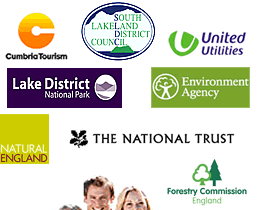The Impact of Climate Change on Lakes: Understanding the Environmental Challenges
Introduction:
Lakes are not just picturesque bodies of water; they play a crucial role in our ecosystem, supporting biodiversity, providing drinking water, sustaining agriculture, and offering recreational opportunities. However, these essential ecosystems are facing a grave threat from climate change. The rising global temperatures, changing precipitation patterns, and extreme weather events associated with climate change have severe implications for lakes and the delicate balance of life they harbor. In this article, we will delve into the environmental challenges posed by climate change on lakes, and explore the critical need for conservation and adaptation strategies.This material may also be interesting for students of various faculties, who often study the impact of climate change on various fields of activity in their qualifications, however, to fully reveal this issue, it is necessary to process a lot of research results and observations, in this case it is better to turn to the dissertation edit service https://topdissertations.com/editing/ for help.
The Role of Lakes in the Ecosystem:
Lakes are essential hubs of biodiversity, supporting a wide range of plant and animal species. They act as vital habitats for aquatic life and provide a breeding ground for numerous species. Additionally, lakes are essential water sources for wildlife, acting as natural reservoirs during dry periods. Furthermore, human communities rely heavily on lakes for drinking water, agricultural irrigation, and recreational activities, making them an integral part of our daily lives.
Understanding Climate Change and Its Causes:
Climate change refers to the long-term alteration of Earth's climate, primarily caused by human activities. The combustion of fossil fuels, deforestation, and industrial processes release greenhouse gases like carbon dioxide (CO2) and methane (CH4) into the atmosphere. These gases trap heat, leading to the greenhouse effect and global warming.
Climate Change and Its Impact on Lakes:
Rising Temperatures:
Global warming has led to an increase in temperatures worldwide, impacting lake ecosystems. As lakes warm up, their water quality and nutrient cycles are affected, potentially leading to the growth of harmful algae and disrupting the balance of aquatic life.
Altered Precipitation Patterns:
Changing climate patterns have resulted in altered precipitation, affecting lake water levels and nutrient flow. Some regions experience more frequent and intense rainfall, causing flooding, while others face prolonged droughts, leading to reduced lake levels and water scarcity.
Extreme Weather Events:
Climate change intensifies extreme weather events like hurricanes, storms, and heatwaves. These events can have devastating effects on lake ecosystems, causing erosion, sediment runoff, and altering water quality.
Melting Glaciers:
High-altitude and mountain lakes are particularly vulnerable to the melting of glaciers caused by rising temperatures. Glacial melting contributes to rising water levels in lakes and can disturb downstream water resources.
Environmental Challenges Faced by Lakes:
Eutrophication:
One of the significant challenges is eutrophication, which occurs when excess nutrients, such as nitrogen and phosphorus, flow into lakes from agricultural runoff and sewage. These nutrients promote the growth of harmful algal blooms, depleting oxygen levels and threatening aquatic life.
Loss of Biodiversity:
Climate change-induced habitat loss and disruption in the natural balance threaten the survival of various plant and animal species. Lakes that serve as vital breeding grounds for wildlife may see a decline in biodiversity, leading to potential extinction risks.
Water Scarcity:
Changing precipitation patterns and increased demand for water resources in a warming world have caused water scarcity in certain regions, affecting lake levels and water availability for human communities.
Impact on Human Communities:
The environmental challenges faced by lakes due to climate change directly impact human communities that depend on these water bodies for sustenance, livelihoods, and recreational activities. Water scarcity and reduced water quality can lead to economic hardships and affect the well-being of communities.
Mitigation and Adaptation Strategies:
Conservation Efforts:
Initiatives like lake restoration, habitat protection, and sustainable fishing practices are essential to preserving lake ecosystems. Community involvement and awareness-raising campaigns play a crucial role in successful conservation efforts.
Climate Change Mitigation:
To mitigate the impact of climate change on lakes, there must be a collective effort to reduce greenhouse gas emissions. Transitioning to renewable energy sources and adopting sustainable practices are key to combating global warming.
Sustainable Practices:
Sustainable agriculture, responsible tourism, and water management strategies can alleviate pressure on lakes and promote their long-term health and resilience.
Community Involvement:
Local communities can actively participate in climate change adaptation by implementing measures to conserve water, reduce pollution, and protect lake habitats.
Conclusion:
The impact of climate change on lakes is a pressing environmental challenge that requires urgent attention. As guardians of these vital ecosystems, it is our responsibility to take action to protect and preserve them for future generations. By understanding the consequences of climate change on lakes and implementing effective conservation and adaptation strategies, we can secure the health and sustainability of these invaluable natural resources. Together, we can foster a more resilient environment where lakes thrive, and the diverse life they support flourishes amid the changing climate.
|

